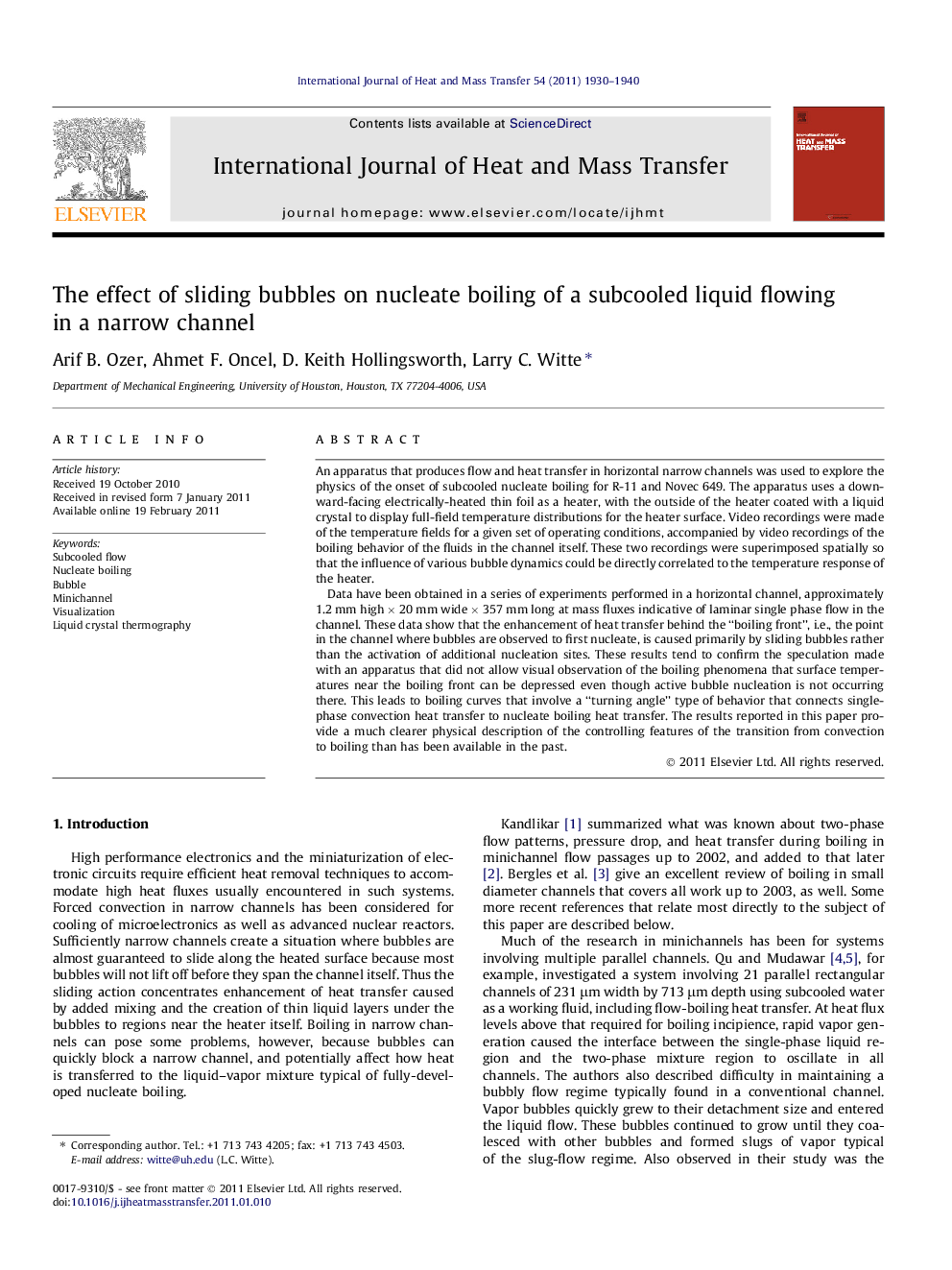| Article ID | Journal | Published Year | Pages | File Type |
|---|---|---|---|---|
| 659795 | International Journal of Heat and Mass Transfer | 2011 | 11 Pages |
Abstract
Data have been obtained in a series of experiments performed in a horizontal channel, approximately 1.2 mm high Ã 20 mm wide Ã 357 mm long at mass fluxes indicative of laminar single phase flow in the channel. These data show that the enhancement of heat transfer behind the “boiling front”, i.e., the point in the channel where bubbles are observed to first nucleate, is caused primarily by sliding bubbles rather than the activation of additional nucleation sites. These results tend to confirm the speculation made with an apparatus that did not allow visual observation of the boiling phenomena that surface temperatures near the boiling front can be depressed even though active bubble nucleation is not occurring there. This leads to boiling curves that involve a “turning angle” type of behavior that connects single-phase convection heat transfer to nucleate boiling heat transfer. The results reported in this paper provide a much clearer physical description of the controlling features of the transition from convection to boiling than has been available in the past.
Related Topics
Physical Sciences and Engineering
Chemical Engineering
Fluid Flow and Transfer Processes
Authors
Arif B. Ozer, Ahmet F. Oncel, D. Keith Hollingsworth, Larry C. Witte,
